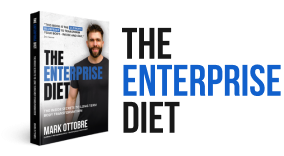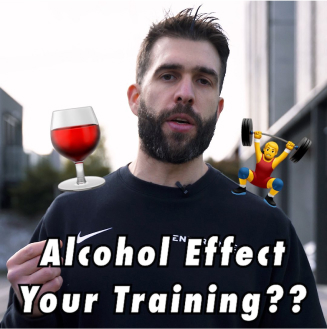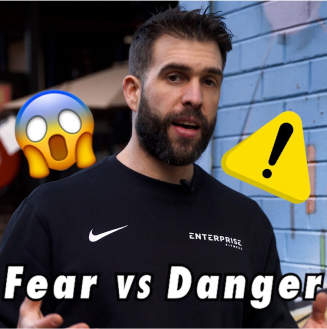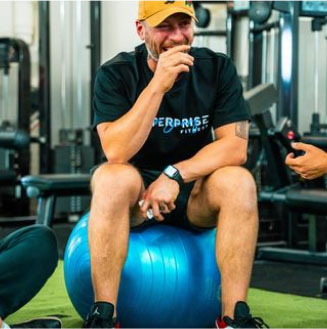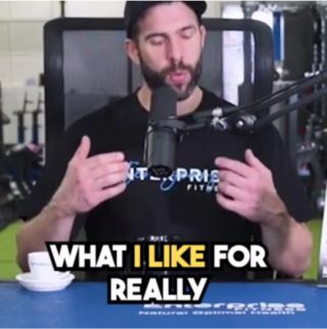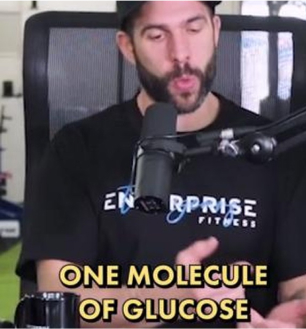The following is a transcription taken from an interview with Mark Schauss and Maximus Mark Ottobre on environmental toxins and how to overcome them
Due to the nature of transcriptions we cannot guarantee accuracy, spelling or grammar. We think we’re doing pretty well to bring you both audio interviews and transcriptions with world leading authority on health and fitness free of charge. If you’re able to edit transcriptions free of charge, we would love to hear from you.
For the audio interview please click here or search “Maximus Mark” on iTunes. 
Mark: Hey folks, it’s Maximus Mark. I’m very pumped for today’s show. Today I have one of the world’s leading authority in both the areas of toxicity, detoxification, and a leading expert in lab data interpretations.
Today’s guest is none other than Mark Schauss. Mark Schauss is an internationally acclaimed lecturer on the effects of environmental toxicity on human health and the use of laboratory testing.
While researching this field for the last few decades, he has gained a comprehensive insight into a range of neurological disorder including epilepsy, autism, ADHD, and neurological degenerative diseases as well as an array of other health problems.
Dr. Schauss is currently the President of the Lab Interpretation based in Reno, Nevada. Mark also presented some of the courses in lab analysis for the Poliquin Institute.
So with that said, welcome to the show Mark.
Dr. Schauss: Oh, thank you for having me.
Mark: Excellent, so what inspired you to write this fantastic book “Achieving Victory over a Toxic World?”
Dr. Schauss: Well, with young daughter, she was diagnosed with advanced form of epilepsy that was supposed to be progressive. And the doctors told us that we should be prepared that by the age of 12, if she even lives that long, that we will probably have to institutionalize her because there’s nothing that we are going to be able to do to save her from this form of epilepsy. She will have seizure after seizure, sometimes hundred a day, one lasting up to six hours.
I said that was not acceptable for me… and that I was not going to take that kind of diagnosis. And so I began my journey. I was already in the field of health since 1983. And I was already doing things like laboratory interpretations for doctors all over the world. And develop a system for it, and as it speeds up, I gotta use my tools.
And then I also had a group of experts out there, people from different labs, osteopaths, MD’s, chiropractors, the whole bit. I started questioning them as to what I could do to help my daughter. And I gained so much knowledge from them.
When she first had it, she was three and a half. So basically, we were told we have eight and a half years with our child. I can tell you right now, she’s about to turn 15. She’s in high school, the seizure activity is very rare, she doesn’t have her drop seizures anymore, (the grand mal’s), and she’s doing quite a bit better than anyone that I expected.
I needed to get that information out to people. I have to tell them that there were reasons why my daughter had this. I believe firmly in my heart and from science that it has to do with some toxic events. When my wife was pregnant with her, to some exposure.
I needed to tell people that there is hope out there. And you just cant take what the doctors tell you. And just lay over and say, “well we’re just gonna accept things as they are.”
So I wanted to inspire people, and I also want to scare them a bit, because we do live in an increasingly toxic world. That’s really dangerous especially for our children. It’s very important that we make sure we stay away from as many toxins as possible, not possible for all of them, but as many as you can.
And also to do a way to detoxifying the body very gently, safely, and rationally that everyone can do, and it’s not that expensive.
Mark: You’re absolutely right. That was definitely inspiring to read so yeah, a little bit scary at the same time. But I’m already reading through your book, its really a fantastic book.
Dr. Schauss: Thank you.
Mark: So. In a nutshell, what is toxicity? Can you explain to our listeners what is it, why would someone need to be concerned?
Dr. Schauss: Well, there’s a lot of different toxins we have in our environment. First off are things that are chemicals that are foreign to our body that can cause harm to it. Some, botulism, you can have just a few molecules actually. It can cause very severe reactions, and very minute amounts can cause death.
But then you have other toxins, which accumulate in our tissues, and while the initial dose don’t seem cause many problems, the accumulation over time can.
These things can go from petrochemicals; like benzene and toluene and xylene… things that are found in paints, paint thinners, and pesticide spray, to heavy metals… like mercury, arsenic, cadmium, a number of them that are seen our environment all the time.
And also the other ones… Stress is a toxin. When you have too much stress in your body, it causes chemical changes, so we have to be aware of all of those.
Recently, there has been a saying with the toxins, it’s all in the dosage. Even water can be considered as a toxin… if you take too much of it. So we have to be careful of what we are getting and know how much of it we’re getting.
Now a lot of the chemical industry will tell you, “our chemicals are safe, they are found in very minute quantities” and maybe they were right, in minute quantities but if you are taking it on daily basis, one example Bisphenol A (BPA) is found in many different sources that a little bit here and a little bit there, pretty soon you’ll have a lot of it. And then with the dose you start getting the effects. The big thing with toxins is everything can be toxic, including nutrients, vitamins and minerals. But it’s all in the dosage.
So, we want to make a correct dosage for the person and when it comes to nutrients. And also to make sure that we keep the least amount of these toxins from getting into her body.
Mark: With something like BPA, it’s said that it acts more of a hormone than it does like a toxin. Therefore, even minimal dose can destruct the whole endocrine system. Would you agree with that or that’s not quite the whole story?
Dr. Schauss: I would pretty much agree with it.
The research that we’ve seen, it’s still in its very early stages, there’s a lot of evidence that BPA does act like a hormone. Just a little bit of it can affect you… but that can be a toxin as well.
You have hormones. If you get in too many types of oestrogens for male especially, you get problems. It is something normal to our body, but too much of it, you begin to disrupt the whole hormonal system.
BPA is just one of those things that you find in so many different sources. I think with every month we come up with something new. I didn’t know, till about two months ago, that you can get it in the receipts that you get from stores.
Mark: Oh wow!
Dr. Schauss: And that your skin is a great place to absorb that. It was something that was shocking to me, but it was just one more source of it. We now have Nalgene bottles which supposedly no longer contain BPA which is used to harden plastics. So many different places that we’re getting it from and it is considered the number one money-making chemical in the world.
Presently, I believe the estimates are that it generates about 100 million US dollars per hour.
Mark: Wow!
Dr. Schauss: That’s a staggering figure, which is why there’s such a big backlash by the industry, obviously.
Mark: Yep.
Dr. Schauss: Well, they are trying to come up with studies saying that everything’s fine with it. That’s a big chunk of change. So, they are going to put down any of these negative studies.
But, BPA does raise a lot of concerns.
Mark: Yeah, definitely.
I know there are a lot of skeptics out there, they are not believing what is out there about toxicity. So how would you respond to statement when people say that the body has its own detoxification pathways and it can detox itself?
Dr. Schauss: Well, I would really challenge them to read the research.
One of the things I have to say, what I wrote in my book, some of these toxins the body does have a pretty decent pathway to detoxify because it was some heavy metal. The body does tend to excrete it. The reason is because humans have been around some of these chemicals for nine thousand years, since the dawn of the Iron Age, and every time they use metals.
But some of these toxins, I would challenge you skeptics, do you know how long they’ve been actually around us? Many of them for less than 20 years. How can the body all of a sudden have this great knowledge of how to excrete something that it has never seen before?
Some of these actually have an affinity getting into fat tissue and stay there. The research that’s coming out, we’re suggesting that many of these chemicals do reside in the body a lot longer than have originally been suspected. And the research on that is coming out fast and furious. That’s the kind of research I think scares some of the corporations greatly.
The European Union passed rules in 2006 called “Ridge” that said they have to start proving that these chemicals are safe and not take for granted that they are safe and prove that they’re not. A lot of countries around the world are looking at it.
Even for the body to get rid of it, why are vast numbers of scientists getting more and more concerned about it?
Mark: Yeah, definitely. Absolutely.
Now you mentioned in your book glycine as a one of the daily supplements that someone could take to detoxify themselves. Can you talk a little bit about glycine?
Dr. Schauss: Absolutely, it is one of my favorite topics. Right now I’m in the midst of writing my follow-up book called “Surviving in a Toxic World”. One of the chapters is going to be on glycine.
Glycine is something that the human body has a desperate need for many different reasons. Glycine is found in collagen, which is in your bone, your tissue. It represents over 50% of total protein make-up of your body and the predominant amino acid is glycine. So there’s an important thing there.
But also, glycine has this amazing affinity for petrochemical toxins and binds up with them very revelry and just flushes right out through the urine. So it’s a really nice effective means of getting into your system, looking around, finding those toxins, binding them up, making them non-toxic, and getting out.
A couple of nice things about glycine – one of the least expensive nutritional supplements in the market, and it tastes good. So using it with children is a breeze. You just take a few grams, put it on their juice or water, tastes fine. You can put it right on the tongue. It has a kind of sweet little taste to it so it’s easy to use.
But I think it’s one that I’ve seen over the years, more and more deficiencies and people as they run amino acid testing, I think that everyone should be getting, for an adult at least 3 grams a day. Begin really inexpensive, it should just be part of the daily routine. Children can take a gram.
One great thing about glycine also, it converge to certain neurotransmitters in the brain that improve memory and coordination. So not just are you getting detoxified by using it, you get to sharpen your brain and you’re going to improve energy cycles, things like that, help to build muscle and the collagen that’s going to help your joints stay more fluid and pain-free.
Mark: Is it possible to take too much glycine and become toxic in glycine at all?
Dr. Schauss: Well, there’s been a study where they’ve used 30 grams per day without negative results. The only possibility, and this is purely hypothetical and I’ve presented it to a couple of conferences, that it could cause people to shovel heavy metals around.
Mark: Oh ok.
Dr. Schauss: Again, hypothetical, we’re not sure if it does really happens or not. But for most normal people who don’t work out too much, 3 to 5 grams you can be very safe, haven’t seen anyone with issue except for one group and those are people with diagnosed true Parkinson’s disease. They have a specific inability to utilize, metabolize glycine properly they’ve to shake even more, but to a normal person it is actually calming.
Mark: Ok. Right.
What do you believe to be the most harmful toxins in the environment and why?
Dr. Schauss: I don’t think there’s anything particular. I think it’s the combination of the multiple toxins, that’s the most concerning to me.
If we go back forty years, if we could time travel, you would cut about 90% of the toxic chemicals that you’re being exposed to today. It didn’t exist forty years ago. But now we have 80,000 chemicals especially in the United States, more so than any other countries, 80,000 chemicals most of which we don’t know, what they do and how they affect the human body.
It is just a sheer number that is staggering. There’s some that I think because of their prevalence, that is disturbing like Bisphenol A. Another one is phthalates, and it’s used to make plastics soft. It is also used in things like air freshener cause it holds an aroma and when heated or forced out into the atmosphere it releases the scent so you can smell things. These plug-ins, your shampoos, conditioners and different types of personal care products that smell good will contain these phthalates.
And we know that phthalates disrupt testosterone, both males and females. There’s been ample evidence that it can damage DNA and male sperm, it can cause shortening of pregnancies in which it is very important to go into full term. We also know that it can cause insulin resistance in men, and gut obesity. There’s just so many different issues it can cause and that’s from what I find, from a lecture of a physician who does a lot of work in amino acids.
He also said there are two times in a young child’s life where testosterone surges are critical to brain neural nets and that’s just before birth and about 3 years of age. Now, we know that phthalates disrupts testosterone and what effects it is having on our children is an increase in autism, ADP, ADHD. Interestingly enough, the explosion of autism occurred about the exact time that phthalates were released into the consumer market. About 1970.
Mark: Is this also aligned with the vaccine theory where people are saying vaccine caused the explosion of autism or do you think it is all the above type thing?
Dr. Schauss: I think it’s all the above. One of my chapters is the Reloaded Revolver theory. We’re all playing a game of Russian Roulette, the more bullets you stick in there the higher the chances you’re going to get something and that its going to go off.
I think what we’re doing is we add the vaccines to the phthalates, we add it to the BPA, to the heavy metals like mercury, to all the different toxins and pretty much you going to just have every kid coming down with something. I saw a study that is rather disturbing. It has said that by the year 2012, we will no longer be having normal, healthy children born.. anywhere.
Mark: Where did you see that study?
Dr. Schauss: It was just one of these that was passed on to me, I have to find the exact study, not recalling it right now. But when it came across and I saw the statistics of the increase of things like ADD, like autism, like asthma, all these other disorders and how they’re growing and they extrapolated these things. Unless we stop this trend, we’re not going to see normal children because they will have one of these childhood disorders.
When I was a child, I was one of two kids in my school who had asthma. I grew up in New York City. About 5 years ago, I was talking to the principal of a school in Lake Tahoe, which is one of the most pristine environments in the US, and he said that 40% of the children in his elementary school had asthma. That’s staggering. And the levels are going up dramatically all over the world. There are numerous studies that are being put out there on this staggeringly high level of asthma and a lot of them are put right at the sea of environmental toxins.
Mark: What can parents and normal people do to really make sure that they do give their child the best starting life? What are some things they can do today?
Dr. Schauss: Yeah. It’s kind of an interesting situation. It’s happening in so many different fields. The American Medical Association wanted to lower the average body temperature of a human to what is normal, from 98.6°F to 98.0°F. We think it was not because it’s healthier but because they were seeing fewer and fewer people with normal body temperatures. Somehow it redefined normal.
The thing with thyroid is something called TSH, thyroid stimulating hormone and the reference range is 0.5 to 5.5 in most labs. But the problem is 35% of the people they’re testing are hypothyroid and are abnormal. So they skew the results. They want to keep more people in the normal range when actually the range would be somewhere between 1.1 and 2.5 for optimal health. They’re lowering the standards of life. That’s a disturbing trend.
They’re saying, “Everybody is being found with styrene in their blood so let’s change the amount of what’s normal.” Styrene is a toxin. It should not be in the human body. It’s not normal to it. It’s not what they call an orthomolecule. Why should any level be tolerated? It’s because there’s a lot of business interests involved and because we’re just getting to the point where many toxicologists are overwhelmed with the amount, saying, “Well, you know, that’s part of what we have to deal with in life so let’s change the norm.”
Mark: Change the norm.
So is there any way that people can go, like, I mean, is doctor’s normal blood testing is at now, I guess becoming obsolete for lowering what’s normal? Where can people go for good testing?
Dr. Schauss: Well, the testing’s available… It’s the interpretation that’s the important part. That’s where, you know, I spent the better part of 26 years, when I developed my first interpretative reports back in 1985, found a simple method of doing it and it pretty much evolved over the years. Now these interpretative reports are available through a company called Health Director and healthdirector.com. It’s available primarily to health care practitioners, it doesn’t matter where you’re from, anywhere in the world, and they can access these and then find out what they need. What they do, is they give the proper reference range, the one that’s for optimal health.
We see a lab where the reference range for cholesterol starts at zero. I hate to tell you, as your cholesterol level approaches zero, you’re dying. There’s a strange humor that says, “The person did die but at least their cholesterol was in the normal range.”
Low cholesterol gives you risks of a lot of diseases including cancer and stroke, accidents, suicide, depression – all are higher in people with very low cholesterol. So we have to make sure that the reference ranges we use are correct and actually reflect health and not the lack of disease.
Mark: Yeah, exactly right. You’ve got a number of good quotes in your book about that as well that definitely point that out.
Apart from glycin, are there any other supplements that people can take to survive the toxic world?
Dr. Schauss: Yeah, there’s quite a number of them.
One I really recommend and is coming from the work of Dr. Linus Pauling, that’s vitamin C. Vitamin C is potent antioxidant but it also helps to build another amino acid, called glutathione. Glutathione does protect the body against oxidative stress and the different chemicals, especially things like phthalates. Taking glutathione is a mixed bag, we don’t know if it really gets absorbed very readily in the gut, lot of evidence says that it doesn’t. But you can take things like acetylcysteine which is also part of the glutathione molecule along with glycine and it helps scoop up a lot of toxins.
Another one is glutamine because it helps the gut. If you keep a healthier gut, then your body cannot absorb some of these toxins that are coming through your digestive tract and will allow it to get out and so it makes your gut barrier more protective.
Taurine is another amino acid that I really love. It is what’s known as neuro-inhibitory, so it’s a calming amino acid. But it also seems to have a lot of detoxification capabilities within it.
You know this other one’s antioxidants, using broad spectrum ones, good quality Vitamin E and A, and D. That’s another big one, I think, is very important in helping your body detoxify.
Mark: How much do you think is optimal Vitamin D?
Dr. Schauss: That’s the million-dollar question today.
I really think that most people today, this is coming from the data that I am seeing for the past 40 years, I personally take about 4,000 to 6,000 units of Vitamin D a day. My daughter, who’s about to turn 15, she gets about 3,000 units a day. If you’re obese, so you going to have to take 10,000 to 20,000 units a day. The big thing you have to do is measure.
Our units here in the States, optimal level is somewhere around 70 for Vitamin D level. Mine was 74; it’s the levels I’m taking. I see a lot of people in the twenties, in the teens; these people take quite a bit of time. The body uses it up, as it was being absorbed so they’re going to need a lot to start catching up, some people 10 to 20,000. Others they’ve actually used in people with different types of arthritis. They’ve given them injections of a 100,000 units at a time every six weeks and then adding 5,000 units a day as a supplement.
The Institute of Medicine in the Unites States was saying “you have to be cautious because of some studies showing that anything over a thousand units a day is toxic” and yet they don’t site anything to show that that’s actually the case. So it’s kind of a bogus claim. There are too many people who think that you can just get it from the sun, we are not seeing that. People in Florida, Australia, places where they have a lot more sun are showing low levels of Vitamin D. If sunshine is your answer that people are getting it, something’s going on. Since 1970’s, the levels of Vitamin D in most people around the world have been plummeting. We do have a lot of evidence of how important (Vitamin) D is in preventing a lot of different disorders.
Mark: Like colon cancer.
Dr. Schauss: Definitely.
Mark: Yeah. And Vitamin C, what do you think is the optimal dosage for Vitamin C?
Dr. Schauss: Going again some personal experience, I’m six foot tall and hundred and eighty, I use about 2,000 milligrams a day. Bowel tolerance is great way to test, take it up to a point where you begin to get diarrhea and back off a little bit. Humans don’t make Vitamin C so I think it’s important that we get it regularly.
We have all these dieticians coming out and said “but you can get it from your diet.” Yeah, forty years ago you could because it was in the food at that time.
Mark: Yeah exactly.
Dr. Schauss: From one study that I saw, and it was by a group of rogue, you might say, registered dieticians here in the States, it said that people could get their recommended daily allowance of all their nutrients, would have to eat around 5,000 calories a day… Because it’s just not in our food. What we use to get is an orange, which would have 120 milligrams of Vitamin C in it, some of them they’ve tested, have no Vitamin C in them. We can’t count on our food to have it anymore, the evidence is just isn’t there.
Mark: Another example that would be with zinc. Foods containing zinc now are on an all time low and pretty much only seafood now contains any zinc and combine that with copper in our environment which is depleting zinc, everyone’s becoming zinc-deficient.
Dr. Schauss: Oh and magnesium. In the United States, it’s the number one deficient mineral.
68% of Americans do not get the recommended daily allowance. That RDA is to prevent magnesium-deficient diseases has nothing to do with beneficial qualities of magnesium in preventing heart disease and a number other ones. To top it off, phthalates bind with magnesium and zinc and basically deplete them. If you’re having a magnesium-deficient diet to begin with, and zinc, and you compound it with this toxin that’s removing magnesium and zinc, you can be functionally magnesium-deficient, and many people are. You have to go to the supplements.
Mark: Definitely. I’m just switching gears a little bit.
Are there any certain companies that are the worst toxic offenders than others? If so, what action can be taken to keep these guys honest?
Dr. Schauss: That’s a dangerous question.
I was in Bogota, Colombia… I was doing a lecture on environmental toxicity as linked to obesity. I was interviewed by the national television station there and it had to do with pesticide spraying with the cocoa leaves. On cocaine producing areas, when you think about this, I would go, “gosh, I would get my government angry at me, or the drug cartel or the pesticide manufacturers”. They’re one of the groups that I think we have to be careful of. So basically, this is politically correct as possible, saying “I just wouldn’t be there when they’re doing the spraying”, just to be a little cautious. Pesticides, that’s a big thing. It’s nice to have a green lawn, but do you really need it? Do you really need to use the pesticides when there are a lot of natural products out there? Companies that make these pesticides are the ones we have to be concerned about. We can go out and protest, we can become active or we can do one thing that’s really powerful, we vote with our wallets and purses… and say “We’re not going to buy products that contain these chemicals in them.” and I got to tell you, that is your biggest hammer, and it works.
In the States, we had companies that would put trans fats, hydrogenated oils in a lot of their different foods. People said, “We don’t want it anymore.” The amount of foods now with trans fats in them has decreased dramatically it’s because people wouldn’t buy their products and now they are all saying “trans fat free”. If we were to go out there and say, “We’re not going to buy your product if it contains, if it’s using pesticides, or has genetically modified organisms like made by Monsanto… We’re just not going to buy it anymore.” They are going to have to listen, eventually. It may be a slow way but it may be our most powerful means of doing it.
We have to stop buying the chemicals in our things. We have to stop buying the sweet smelling shampoos. We got to stop doing all of these stuffs and spend the money on products that are better for us, that are safer and they will listen.
Mark: Yeah definitely. Same thing happened in Europe with genetically modified food. The market just simply didn’t accept it so they have to drop it completely. I believe genetically modified food is allowed in Europe but they choose not to use it because consumers have simply rejected it.
Dr. Schauss: They seem to be a lot more advanced. In my country, where our government is actually saying, “We’re not going to let you label that you don’t contain genetically modified foods.” We don’t want the people to know and that’s just so disturbing. Let us make the choice.
You can say, “The research just isn’t there.” That’s fine, you may think that. But I don’t care; I still want to be able to make an educated choice. Keeping us in the dark is the worst thing they can do for us.
Mark: Absolutely. Any final thoughts today?
Dr. Schauss: Well, just the big this is that we do live in a very, very toxic world but I think it’s very important now we can do a lot to reduce the amount of toxins that we’re getting into our body. We should know what we’re being affected by, and do what we can to avoid them. That’s the big thing. It’s nice to be able to detoxify ourselves and do things like that but it’s best never to get them into your system in the first place.
Mark: Absolutely. Well, thank you so much Mark for taking a time out of your busy schedule to chat with some of the call today. I’m sure all the listeners out there will be very much appreciative of the great pearls of wisdom that you were able to offer on how they can reduce their toxic load.
Thank you for tuning in. Links to Mark’s book “Achieving Victory Over a Toxic World” will be both on my website as well on Mark’s website, www.markschauss.com. They have links on my site as well. And also buy the book from amazon.com. I can’t recommend it enough, it is an absolutely brilliant book. It’s very entertaining to read as well, so it’s easy to read. As well as packed full of fantastic information. So, thank you so much for today Mark.
Dr. Schauss: Thank you for having me.
Mark: You’re welcome and keep up your great work.
Dr. Schauss: Thanks.
Mark: Bye.
So today we had a guy that was Mark Schauss in achieving victory over a toxic world. Absolutely epic interview right there giving you the information you need to know to decrease your toxic load. Feel free to share this with your friends, let them know, your parents, loved ones, whoever is close to you. We really need to know how to reduce our toxic load because it is one of those things that’s very, very important. So feel free to share this interview. And while you’re at it, purchase Mark’s book “Achieving Victory Over a Toxic World”. You can go to Amazon or on my website maximusmark.com. Just click the store button and you will be able to find it there in the books section.
Hope you like this stuff. If there’s any topic that you want me to cover, just go to maximusmark.com, hit the mark, ask mark, then shoot me an email and I’d love to hear what you guys think.
‘Till then, train hard, eat well.
Maximus Mark

